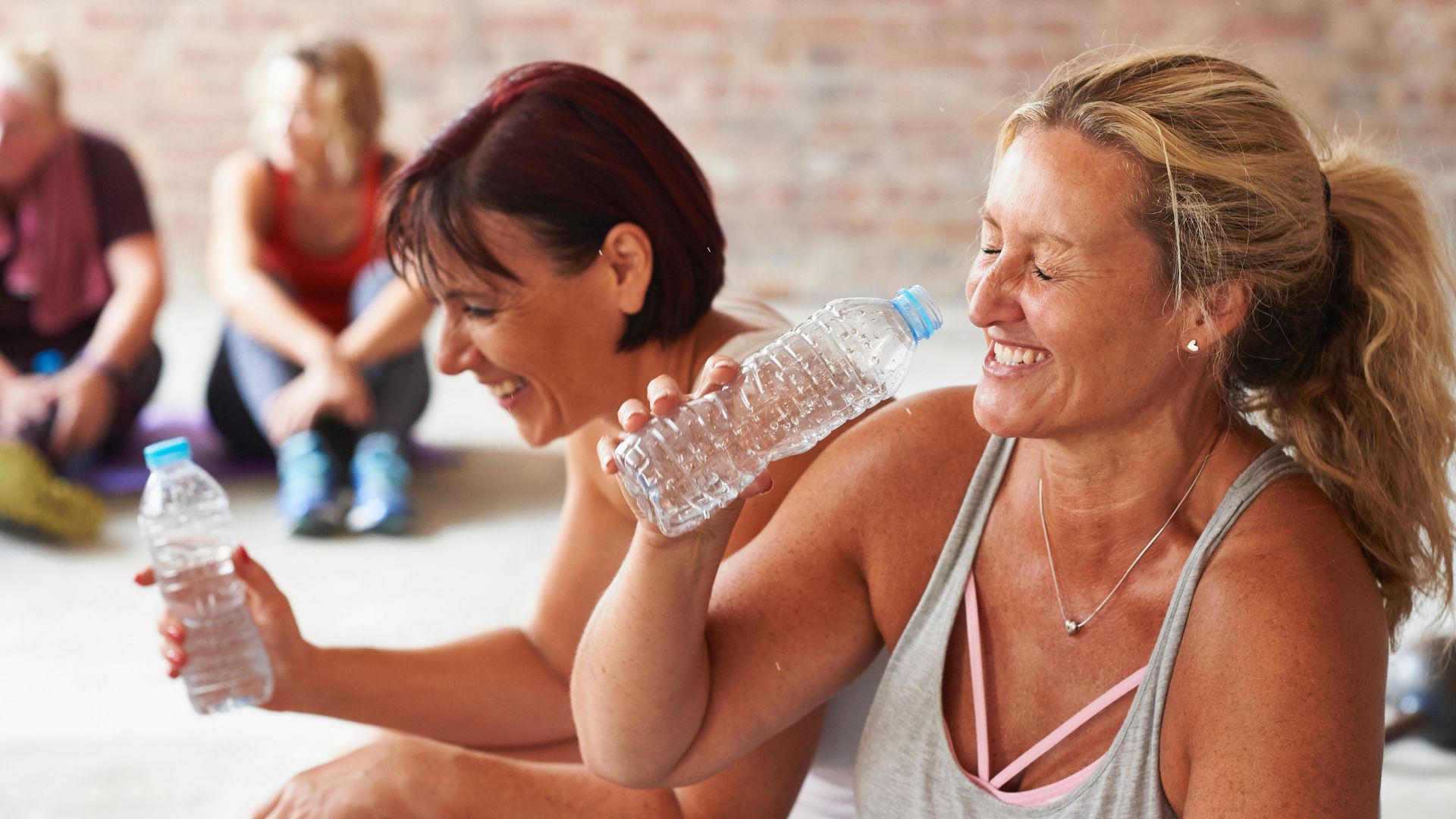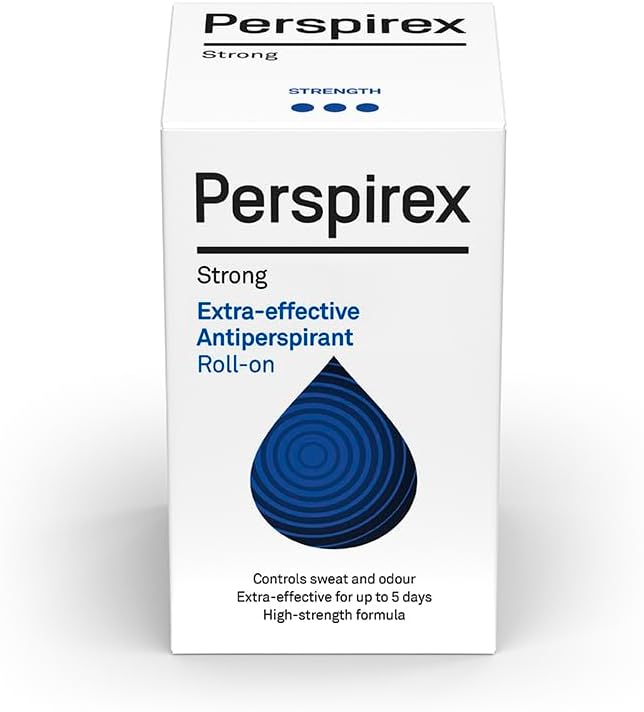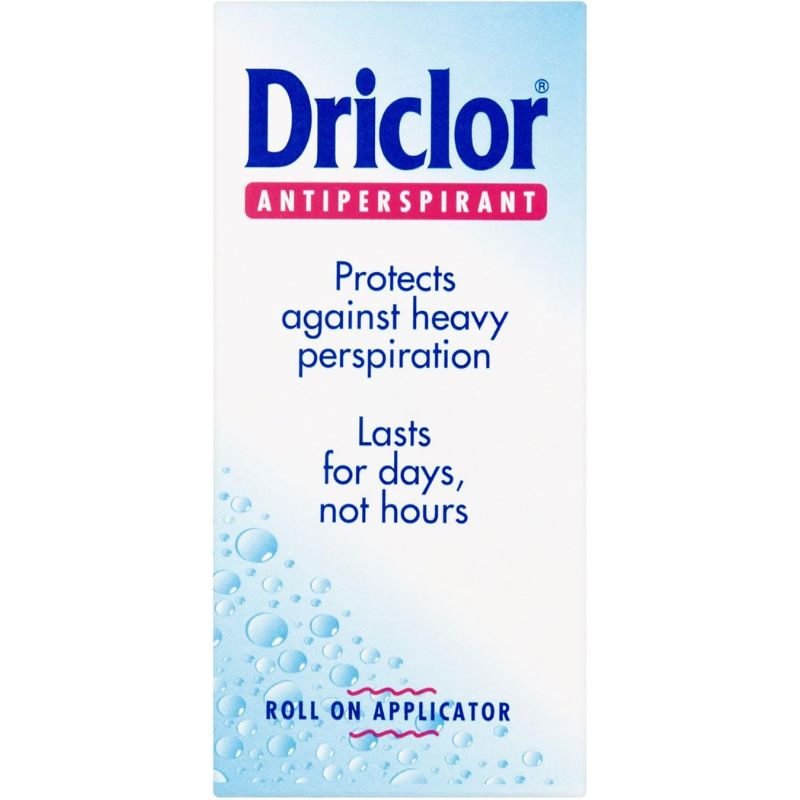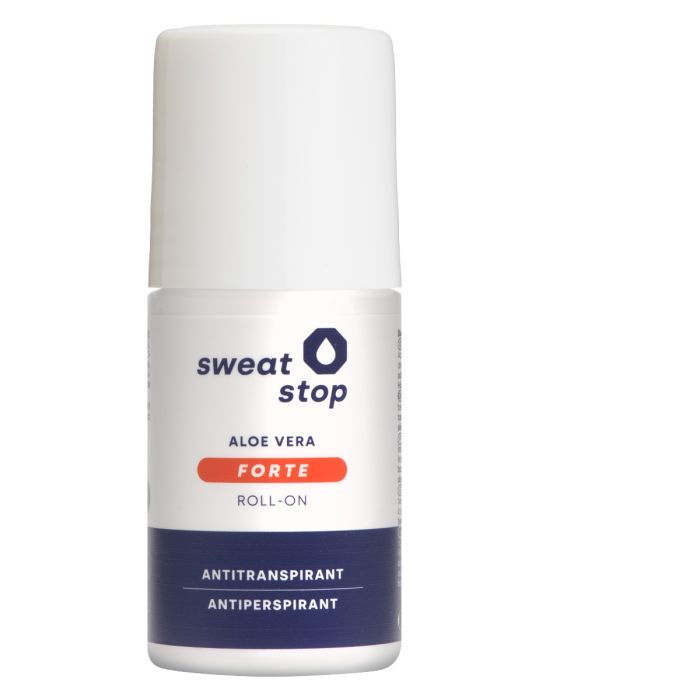How to control sweating: 9 ways to prevent humidity ruining your day
Sweating is a common problem for most in summer - and all year round for some. Here, the experts reveal how to control sweating and feel comfortable no matter the season


While the start to summer in the UK has been a little disappointing where sunshine is concerned, the heat has definitely arrived. It may be humid and sticky, but it's here. So, if you are one of many who want to know how to control sweating - welcome to the club.
Sweating is a perfectly natural (and very much necessary) bodily function. It helps to cool us down when we are overheating, preventing conditions like heat exhaustion, which can be deadly. Needless to say though, it can be uncomfortable and awkward at times - like in the office, on public transport, and on social occasions - if you happen to wearing the wrong colour.
The good news is, the experts say you can learn how to control sweating and limit what causes excessive sweating in the first place. From the best deodorants and creams to limit how much you sweat to practical long-term lifestyle changes, we've asked doctors and dermatologists to reveal their go-to tips and tricks.
How to control sweating
1. Wear clothes made of natural fibres
"Lightweight, loose-fitting clothing made from natural fibres like cotton, which allow your skin to breathe and help wick moisture away are best," says Dr Mayoni Gooneratne, a specialist in functional and lifestyle medicine.
Given the recent fashion trends, linen shirts and linen trousers are a stylish and practical addition to any wardrobe - and particularly useful if you're dealing with excessive sweating.
When it comes to shoes, we often think that open-toe will be the coolest, but Dr Aveen Connolly - a consultant dermatologist at the Cadogan Clinic - says that it's better to look at the materials your shoes and socks are made from. "Leather shoes and sandals are recommended, and for the feet, moisture-wicking socks and absorbent insoles are useful," she says.

Dr Mayoni Gooneratne is a prominent medical doctor with a diverse background in both surgery and functional medicine. Her career spans significant contributions to women's health, entrepreneurship, and medical education. Formerly a colorectal and pelvic floor surgeon in the NHS, she has transitioned into empowering female entrepreneurs and professionals to prioritise their health effectively and efficiently.
2. Adjust your environment
Knowing how to keep cool in the summer at home - and anywhere else you find yourself - is essential. If your bedroom, living room, or office are designed to keep heat in, rather than push it out (like most buildings in the normally-cold UK), you may struggle.
Sign up to our free daily email for the latest royal and entertainment news, interesting opinion, expert advice on styling and beauty trends, and no-nonsense guides to the health and wellness questions you want answered.
"Use fans, air conditioning, and cool showers to keep your body temperature down," says Dr Gooneratne. "Handheld fans and cooling towels are useful if you're on the go."
3. Use deodorant with aluminium
Getting practical here - a strong deodorant is needed to control sweating in many cases. "Clinical-strength antiperspirants containing aluminium compounds can be purchased over the counter (e.g. Aluminum Chloride at 12% or 14%) and there are stronger prescription aluminium-based antiperspirants at 15% you can buy," notes Dr Gooneratne.
Aluminium is a useful ingredient in deodorant as it reduces sweat by blocking the ducts in your underarms, and minimises body odour by preventing bacteria forming that feeds on the sweat and causes more of it. Nice.
However, Dr Gooneratne notes, that some people may prefer not to use these kinds of deodorants, so consult your local pharmacist should you want an alternative. "Many people are now moving away from such strong chemicals to reduce their toxic load as we know some of these chemicals are now found in super high levels in our bloodstream," she says.

Developed specifically for those who suffer with excessive sweating, the Perspirex Strong Anti Sweat Deodorant Roller offers up to 5-days of protection against wetness and body odour, with a combination of active ingredients - including aluminium chloride.
4. Try a drying cream
If you find that antiperspirant deodorants dry out your skin, they don't last long enough, or you sweat from other body parts - such as your feet, palms, or cleavage - try a drying cream.
"These contain aluminium-based compounds that work by temporarily blocking sweat ducts to reduce the amount of sweat that reaches the skin's surface," says Dr Unnati Desai, the national lead for GP services at Nuffield Health.
"They are effective at treating underarms, palms, and feet, and when used correctly, can provide longer-lasting relief when compared to traditional antiperspirant sprays or roll-on deodorants."
"Drying creams are typically applied to clean and dry skin before you go to bed (giving them time to work overnight), whilst others may require regular application throughout the day for best results," she notes.
Dr Unnati Desai is National Lead for GP Services, as well as Safeguarding Lead for GP Services and Dermatology Lead. She has worked as a corporate GP within Nuffield Health since 2011. She completed her medical degree and postgraduate medical training in Birmingham, and completed her law degree in Nottingham. She pursued a career in General Practice and incorporates her areas of specialist interest – dermatology, women's health, sexual health and family planning – into her clinical practice.
5. Try to relax
It's easier said than done but relaxing can be one of the best ways to learn how to control sweating as sweat is a product of an overloaded nervous system in some cases.
"Stress and anxiety can play a role in excessive sweating," says Dr Connolly, and it's one of the signs of high cortisol levels. "Managing stress with relaxation techniques and mindfulness can help, in turn, reduce sweating. In the long term, sometimes seeking counselling may be necessary to address underlying anxiety."
Dr Aveen Connolly is a UK-trained consultant dermatologist at King’s College Hospital NHS Trust. She completed her dermatology training at the internationally renowned St John’s Institute of Dermatology within Guy’s and St Thomas’ and King’s College Hospital, London. She has also completed an externship at the Dermatology Department at Yale University Hospital, United States, in spring 2022.
6. Make dietary changes
Certain foods and beverages have the potential to trigger or exacerbate sweating in some individuals, says Dr Desai. "Making dietary changes to avoid these triggers and incorporating foods that help regulate body temperature can be a valuable tool to manage excessive sweating."
Foods that typically induce sweating include:
- Spicy foods
- Caffeine
- Alcohol
- Hot beverages
If you are sweating a lot, you also need to stay hydrated to replenish the lost fluids and electrolytes in your body, she notes, and you can also do this with your diet. "Staying hydrated with water and consuming foods rich in magnesium, such as leafy greens, nuts, and whole grains can help regulate sweating."
7. Do regular exercise
"While exercise can induce sweating during the activity, regular physical activity can improve overall fitness and help regulate body temperature more effectively, potentially reducing sweating in the long term," says Dr Connolly.
This might be trickier in the summer, especially if it's warm and sunny outside, as you run the risk of overheating while working out. For most people, up to 27°C degrees will be manageable to exercise in - but always consult your doctor before taking up any new exercise routine.
For those exercising indoors, doing yoga every day or going swimming every day could be a beneficial way to improve your fitness, stay cool, and workout without major impact on the bones and joints, which can cause further discomfort.
8. Shower more often
Excuse us for stating the obvious - but good hygiene practices won't only reduce the risk of body odour from excessive sweating but can help to limit it entirely.
"Ensure you have good hygiene practices, such as showering regularly and keeping areas prone to sweating (like underarms and feet) clean and dry," says Dr Connolly. "Cotton, silver and copper socks have also shown benefit. Alternating shoes to allow them to dry out before wearing them again is also advised."
9. Medical treatment
If all lifestyle interventions fail to help you learn how to control sweating, there may be more at play. Hyperhidrosis is the name given to excessive sweating that occurs on its own, mostly likely resulting from overactive eccrine sweat glands, or as a side effect of another medical condition - such as an overactive thyroid.
For this, medical intervention is required:
- Botox injections: "Botox can be injected into sweat glands to block the nerves that trigger sweating from the underarms, hands, feet, and the face," says Dr Gooneratne. This is one of the most common treatments used to treat sweating.
- Iontophoresis: "This technique involves using a device that passes a mild electrical current through water and into the skin's surface, which can help reduce sweating in the hands and feet," she says.
- MiraDry: "This is a non-invasive treatment that uses microwave energy to destroy sweat glands permanently in the underarms."
- Surgery: "In severe cases, surgical options like sympathectomy (cutting nerves that trigger sweating) or sweat gland removal can be considered," says Dr Gooneratne. "But these are usually last-resort options due to potential risks and complications."
- Medication: For those looking for a less-invasive approach, medications are available. "Prescription-only oral medications like anticholinergics can help reduce sweating, but they may have side effects," the doctor says.
Why do I sweat so easily?
"Sweating is a normal bodily function, but for some people it becomes excessive, uncomfortable, and even embarrassing," notes Dr Desai. "Hyperhidrosis can occur in different areas and is defined as sweating that goes beyond what you’d normally expect given your physical condition or environment."
This condition may cause you to sweat more easily than most. It's characterised by sweat in such volume that it soaks through clothes and drips off your skin. You may also experience intense flushing on your face as well - but a doctor will be able to diagnose this.
Sweating is also a symptom of other bodily changes - it's a symptom of perimenopause, for example. Many women experience night sweats when approaching menopause as levels of hormones oestrogen and progesterone are in flux.
Is it unhealthy if I sweat a lot?
No, for most people sweating is just a part of life and it's particularly bad during exercise and in warm environments. However, if you find that you're sweating excessively and it's causing issues in your life, it's worth seeing a doctor.
"Before your appointment, it can be helpful to make a brief note of the following," says Dr Desai.
- If it’s stopping you doing certain things
- How long it’s been a problem for you
- When it’s at its worst
- If the episodes come and go in certain environments or situations
- Whether you have a family history of excessive sweating
- Anything you’ve done to try and treat the problem
When applying deodorant to help reduce sweating, Dr Gooneratne advises the following: Apply at night - most clinical-strength antiperspirants work best when applied to dry skin before bed. "This allows the active ingredients to work overnight when sweat production is typically lower," she says. She also suggests putting your deodorant on dry skin to prevent any potential irritation, and only using a small amount as over-application can also cause dry skin and irritation.

Grace Walsh is woman&home's Health Channel Editor, working across the areas of fitness, nutrition, sleep, mental health, relationships, and sex. She is also a qualified fitness instructor. In 2025, she will be taking on her third marathon in Brighton, completing her first ultra marathon, and qualifying as a certified personal trainer and nutrition coach.
A digital journalist with over seven years experience as a writer and editor for UK publications, Grace has covered (almost) everything in the world of health and wellbeing with bylines in Cosmopolitan, Red, The i Paper, GoodtoKnow, and more.

